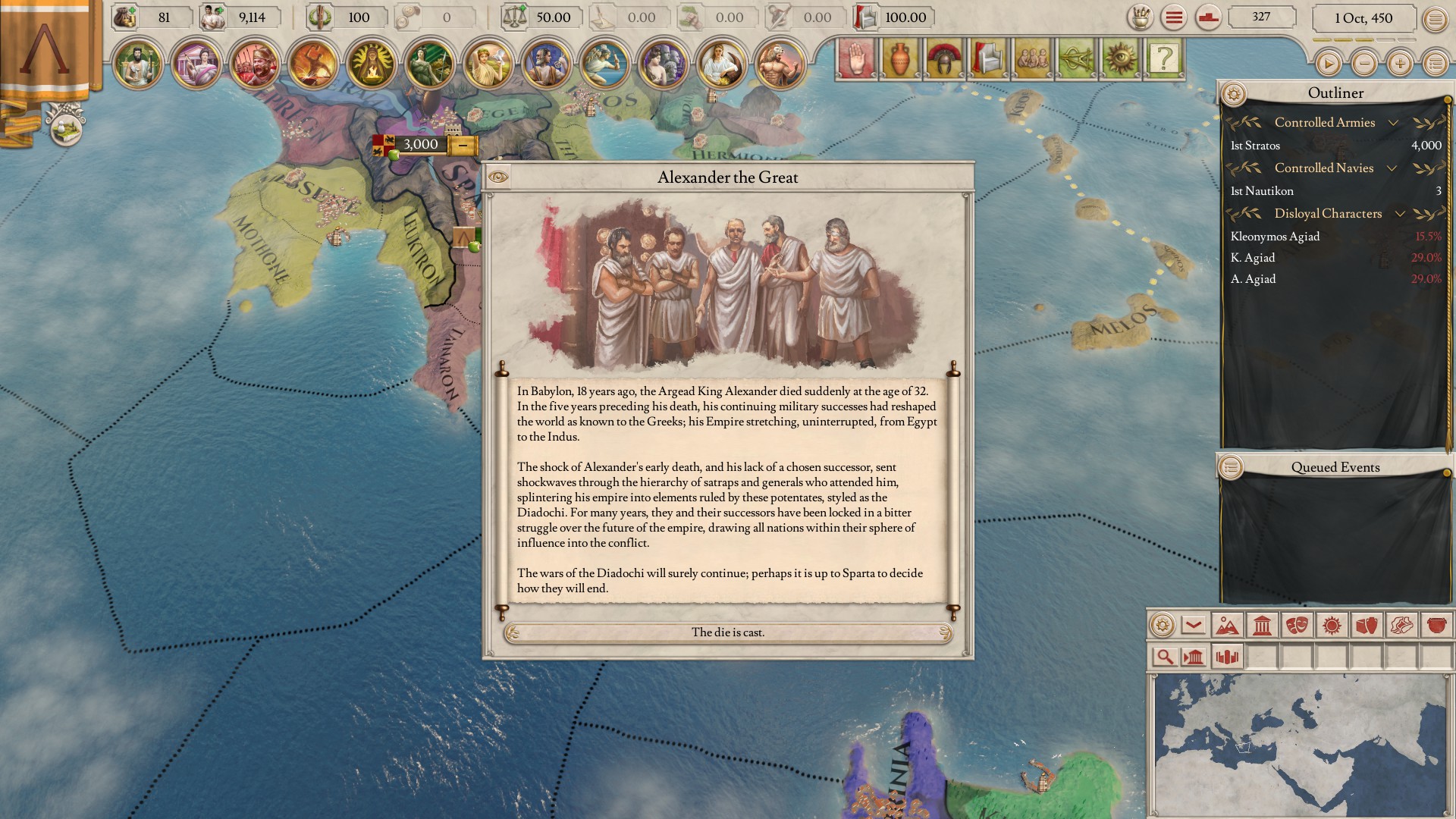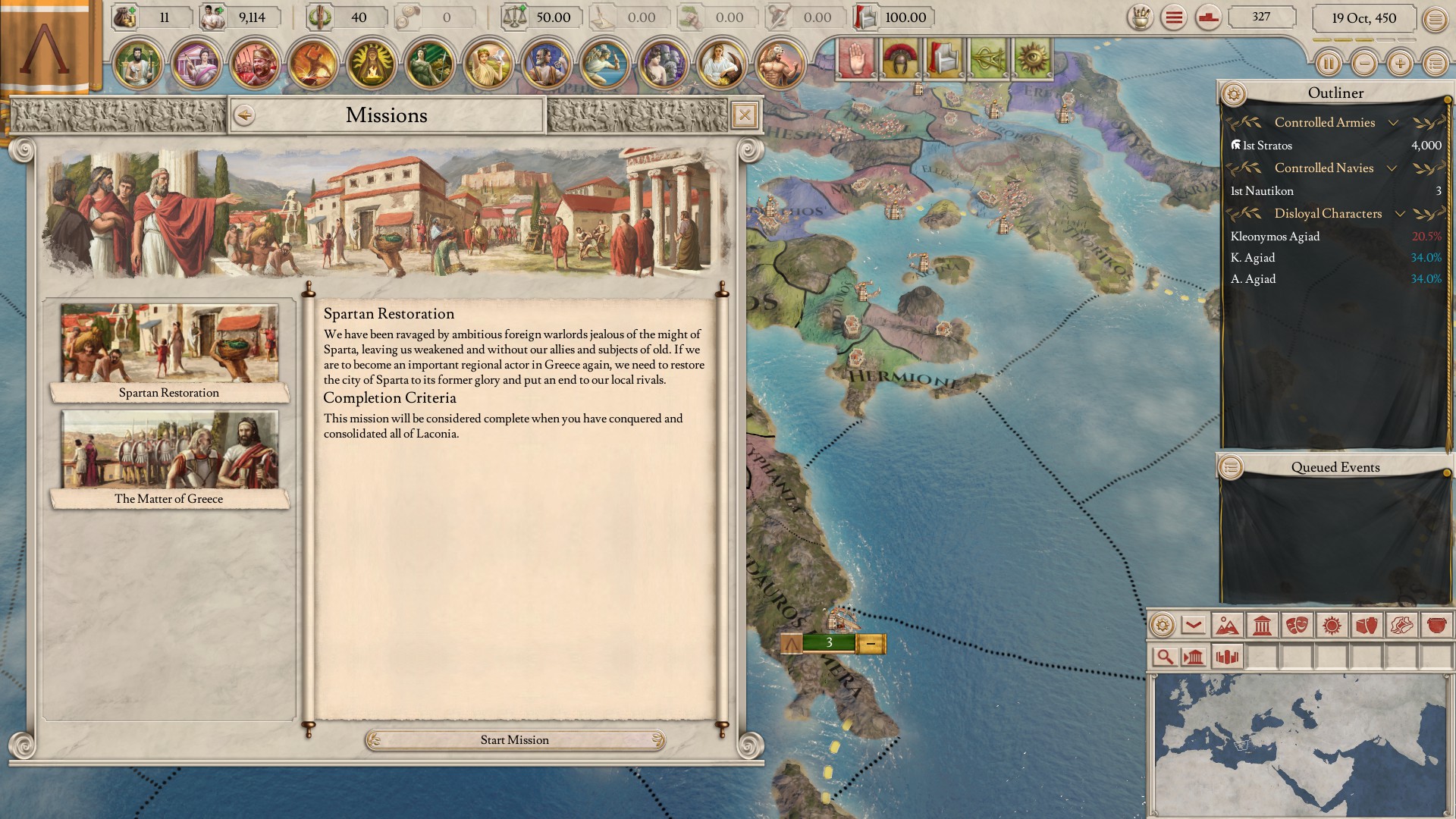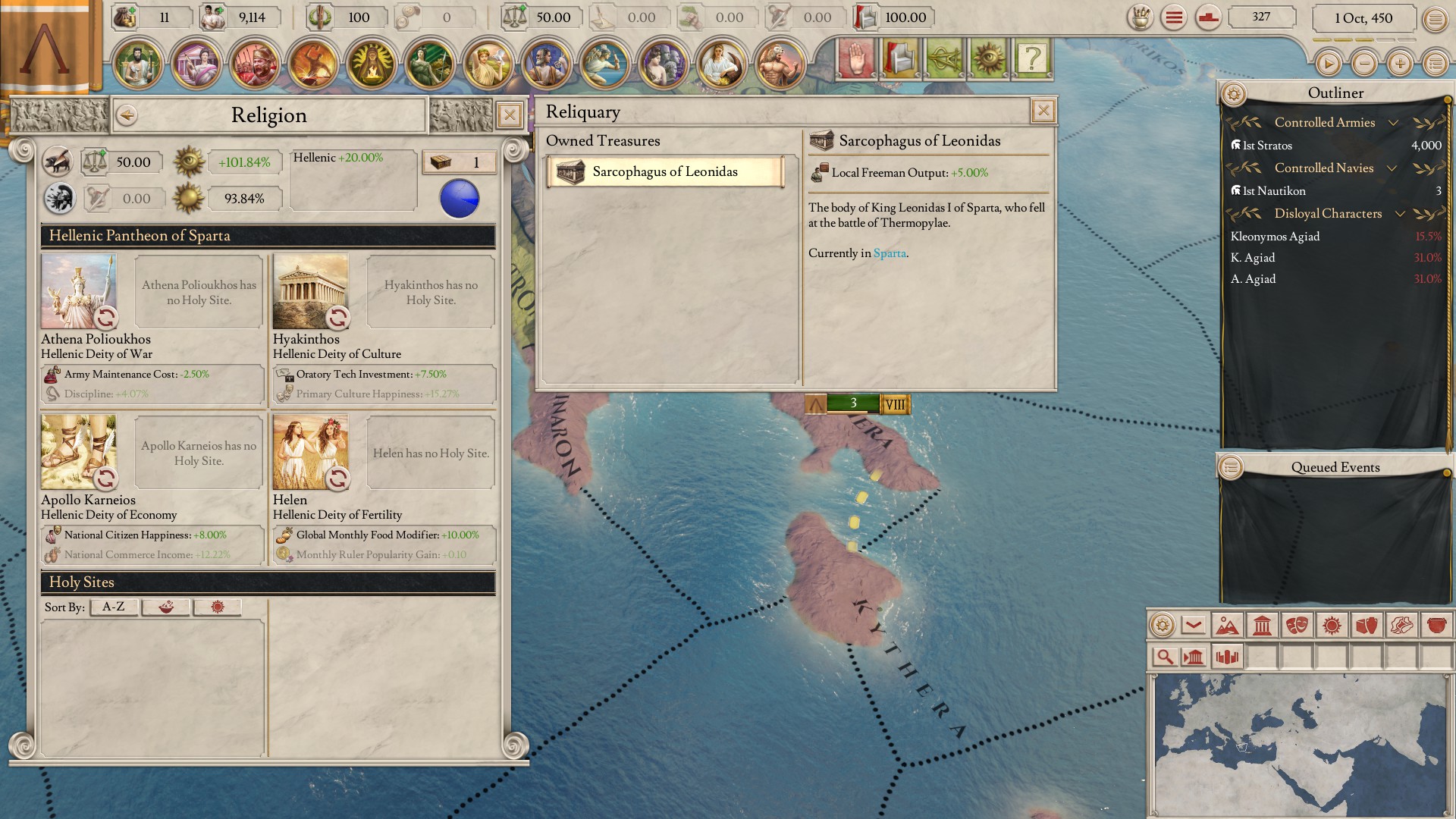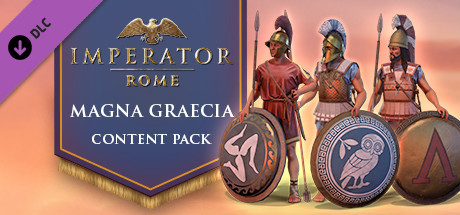A nice boost of content to a decent grand strategy with a promising future, Magna Graecia makes playing as the Greeks a more rewarding experience.
Type: Single-player, Multi-player
Genre: Strategy
Developer: Paradox Development Studio
Publisher: Paradox Interactive
Release date: 31 March, 2020


Overview
Paradox Interactive has had a special place in my heart ever since I first laid hands on Crusader Kings II. In the years that followed, Stellaris, Hearts of Iron IV, and Cities: Skylines managed to carve some space out in there as well, and I even enjoyed my meager thirty hours in Europa Universalis IV, though I really need to get buckle down and get back to that one. It long seemed to me that anything Paradox released into the strategy genre was destined for greatness. Sure, there’s plenty of DLC that gets released that can crank up the price of the full experience, but I’ve always found it to be packed full of value that was hard to match anywhere else. There’s nothing better than a fantastic game that is continually updated, expanded on, and perfected over several years.
Imperator: Rome was different though. At the time of its release, it was particularly bare-bones and I found that, although I found it fun enough, I couldn’t justify playing it over one of its more developed sister games. I tucked it away on my digital shelf and decided to wait for it to improve. Magna Graecia is the first paid DLC after a long string of updates that have significantly improved the title and it offers a handful of new elements that enhance the gameplay experience for the Greek powers.

March of the Phalanx
The new Greek missions trees of Magna Graecia offer a more unique feel for Sparta, Athens, and Syracuse. Sparta, for example, has two separate trees that can be activated a focused upon: one for rebuilding its legacy and establishing a powerful base of operations in its region and one for more far-reaching conquests. These trees were interesting and I always found myself looking forward to unlocking the next step on each branch, though they certainly can’t compete with the depth that you might be used to if you’ve played Hearts of Iron IV. It’s not rare to unlock the entire tree as opposed to many branches being exclusive and potentially offering significant differences in the long run. Of course, this could be chalked up to Imperator still being a simpler experience than Hearts of Iron overall, but I couldn’t help but miss the heavier consequences of certain choices. It’s also worth noting that the accomplishments and their rewards vary quite a bit from one to the next; some are challenging while others are shockingly easy, some offer great rewards while others may be nearly worthless depending on your current circumstances. I found the new missions to be the most exciting part of the DLC, and although I’m not disappointed by any means, I would’ve liked to see them have more of an impact on the experience overall. I hope that we see further improvements to this feature in the future.

To Hellenism and Back
Magna Graecia’s other prominent content impacts the religious front. A dozen new deities arrive to populate the Hellenist pantheon and each offers its own perks. You’ll select four of the deities to serve at the forefront of your people’s beliefs and each one offers its own passive benefit that affects the nation as a whole. One of these can be activated for a significant perk with effects that are likely to last for quite some time, though doing so locks you out of changing your decision over the next several years. The deities vary wildly and you have the option to swap which are revered the most heavily by your faith if the need arises. And hey, if you play your cards right, you might just end up being worshipped as a god yourself which has some very handy perks associated with it as you might expect.

Verdict
Magna Graecia serves its purpose as a content pack and improves the Greek experience in several ways that make them stand out from other civilizations. However, it isn’t an expansion and doesn’t add sweeping changes that alter what you’ve known of the title if you’ve played it recently. The new content is enjoyable and if you’re interested in playing the Greeks, it’s worth the asking price. If you’re not looking to play them, this is unlikely to be a worthwhile investment for you. Overall, it’s a solid small step going forward for Imperator: Rome and I hope to see plenty more of them as the title has shaped up quite nicely over the last year’s free updates.










